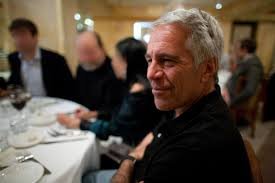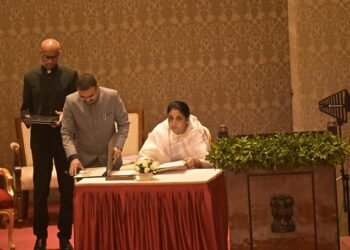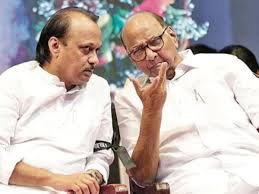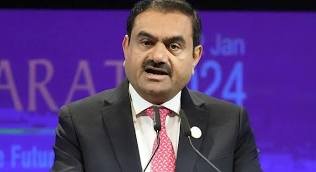In a show of rare unity, Kuki-Zo leaders—from elected representatives to SoO groups—are converging in Guwahati to push for a separate administration. Backed by months of internal consultations, the agenda signals escalating pressure on the Centre for a political resolution.
BY PC Bureau
May 14, 2025 — Amid continuing ethnic unrest and political uncertainty in Manipur, the Kuki-Zo community is poised to present a unified front in a high-stakes meeting scheduled for May 16, 2025, in Guwahati. This gathering marks a pivotal moment in the community’s pursuit of a separate Union Territory, bringing together elected MLAs, civil society organizations (CSOs), and key stakeholders from armed groups under the Suspension of Operations (SoO) agreement.
The convergence of multiple initiatives—including recent strategic meetings in Rengkai and Kangpokpi—signals the community’s intent to consolidate its political objectives, strengthen internal cohesion, and escalate its demands to the national stage.
The upcoming Guwahati meeting, organized under the Kuki-Zo Council (KZC), is expected to be a landmark event that builds on resolutions passed in the first KZC Governing Council meeting in Churachandpur and the Committee on Tribal Unity’s (CoTU) internal consultation in Kangpokpi.
ALSO READ: Manipur: When will the NIA Nab the Big Fish Behind Violence?
Key agenda points include:
- Demand for Union Territory Status: All factions have reaffirmed their demand for a Union Territory under Article 239A, akin to the Puducherry model. This, they argue, is a constitutional and peaceful resolution to ensure administrative equity, justice, and durable peace for the Kuki-Zo people.
- Formation of a Popular Government: With the legislative assembly in suspended animation, the MLAs will deliberate on the move initiated in certain quarters in the BJP for formation of new government.
- Peace and Security Concerns
- Strategic Coordination with SoO Groups
Armed groups such as the Kuki National Organisation (KNO) and United People’s Front (UPF)—signatories of the 2008 SoO agreement—have emphasized the need for MLAs to prioritize the separate administration demand in any political negotiation.
Participants and Organizational Cohesion
Nine of the ten Kuki-Zo MLAs are expected to attend the Guwahati meeting. Notable names include:
Nemcha Kipgen (Kangpokpi, BJP); Letpao Haokip (Tengnoupal, BJP); Ngursanglur Sanate (Tipaimukh, BJP)
Haokholet Kipgen (Saitu, Independent); Paolienlal Haokip (Saikot, BJP);Chinlunthang (Singhat, KPA)
LM Khaute (Churachandpur, BJP);Letzamang Haokip (Henglep, BJP);Kimneo Haokip (Saikul, KPA)
BJP MLA Vungzagin Valte may be represented by a delegate due to health issues following a mob attack in May 2023.
CSOs such as the Kuki-Zo Council, Zomi Council, Hmar Inpi, and Kuki Inpi Manipur will play pivotal roles. These bodies have emphasized consultation-first frameworks, signaling a bottom-up approach to political strategy.
Parallel Internal Deliberations: Rengkai and Kangpokpi
In preparation for Guwahati, the KZC Governing Council’s meeting in Rengkai passed five key resolutions:
*Expansion of the Council cabinet for broader representation
*Creation of an equitable annual budget system
*Reaffirmation of guiding principles without amendments
*Political reaffirmation of the Union Territory demand
*Decision to reflect popular tribal opinion in Guwahati talks
Meanwhile, CoTU’s consultation in Kangpokpi served as a deeper strategic reflection point. Themed around inclusive strategies, the session engaged stakeholders in evaluating the status of political negotiations and broader social concerns, reinforcing the community’s commitment to consensus-based decision-making.
KOHUR Appeals to NHRC Over Inaction on Ethnic Atrocities in Manipur#kohur #ManipurViolence #KukiZoGenocide#HumanRightsCrisis #NHRCActNow https://t.co/iAYSkO5bEJ
— POWER CORRIDORS (@power_corridors) May 14, 2025
Tensions with Meitei Leadership and Centre’s Challenges
The Kuki-Zo leadership has remained skeptical of joint dialogue efforts by the Union Ministry of Home Affairs (MHA). Notably, in October 2024, Kuki-Zo MLAs refused to participate in a joint meeting with Meitei representatives in New Delhi, opting instead for separate discussions.
Attempts at peace talks have stalled. A meeting on April 5, 2025, between Kuki-Zo and Meitei CSOs failed after Kuki-Zo groups rejected a peace draft backed by Meitei organizations like AMUCO and FOCS, citing the absence of hardliner groups such as COCOMI and unresolved issues with the SoO framework.
The Guwahati meeting will likely serve as a unifying milestone for Kuki-Zo political and militant leadership, consolidating their core demand for a Union Territory and challenging the Centre to respond with clarity and urgency.
While Union Home Minister Amit Shah has publicly supported dialogue over prolonged President’s Rule, the absence of Meitei and Naga representatives from the Guwahati meeting underscores the fragility of broader peace efforts, which hinge on inter-community negotiations.
Zoramthanga, former Chief Minister of Mizoram, has previously expressed solidarity with the Kuki-Zo cause and may play a behind-the-scenes role in regional diplomacy.
The upcoming Guwahati dialogue represents not just a political coordination effort but a test of resolve and unity for the Kuki-Zo community. For a population devastated by conflict and decades of marginalization, the stakes are existential.
As one MLA remarked: “Our people have suffered enough. This meeting is about securing a future where peace and justice prevail.”
Whether this roadmap leads to genuine self-governance or further political limbo will depend largely on New Delhi’s engagement, the Centre’s willingness to recognize tribal aspirations, and the broader region’s capacity for inclusive dialogue.













